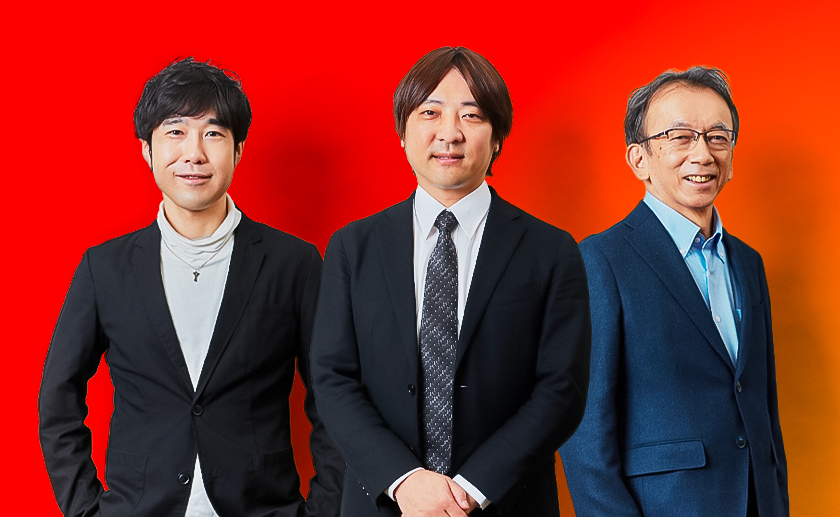
When the global pandemic reached Europe, Spain very quickly became one of the worst-hit places.
With the healthcare system under significant pressure, there were serious concerns around resources – from the number of hospital beds to the stockpile of respirators.
Confronted with a potentially dire situation, Fujitsu stepped in and used its strengths in agility and human centric collaboration to address these challenges head on.
From innovating and upgrading the nation’s emergency communication systems, to the rapid development of cheaper respirator technology, in this article, we’ll illustrate how Fujitsu used digital transformation to support the valiant efforts of doctors, nurses, and other frontline workers handling the crisis.
Digital enablement of the healthcare system
One of the first and most pressing challenges Spanish healthcare providers faced was the burden Covid-19 placed on communication lines.
What were once common symptoms such as cough and fever, were suddenly an indication that one may have contracted an unknown, potentially lethal disease – panic started to spread.
As such, the Madrid Healthcare Service (SERMAS) was inundated with calls from the worried general public seeking advice. It was also facing the beginnings of a bed shortage crisis in hospitals.
Prior to the pandemic, Fujitsu had already been providing support to SERMAS through our human service operation called CEDAS. CEDAS controls all of SERMAS’ centralized computer systems and helps maintain its Continuing Professional Development (CPD) infrastructures and its centralized healthcare applications, which allows it to operate more efficiently.
So, as the pandemic worsened and SERMAS grew to cover more medical locations and communication solutions, we expanded CEDAS to ensure the service remained efficient.
We first worked in collaboration with other Spanish companies to add more than 200 phone operators to the Patient Care Center in just a few hours to meet rapidly increasing demands.
CEDAS was also vital in the launch of Spain’s largest temporary healthcare facility, Ifema Campaign Hospital, which was built in just a few hours to handle the surge in critical patients.
With more than 5,000 beds and 500 ICUs, it still needed a centralized computing system before it could open. CEDAS was able to provide the necessary infrastructure in under seven hours, supporting healthcare providers by integrating all the relevant technology in a single weekend.
Hotels were another location that had to be commandeered in order to house the overflow of less critical patients. Again, CEDAS was instrumental in facilitating these newly medicalized hotels by integrating their computer systems into the centralized network and providing constant IT support.
Because, when dealing with a fast-moving virus like Covid-19, the agility and speed digital transformation unleashes becomes essential to staying one step ahead of it.
Secure cloud access beyond hospital walls
The overflow of patients and the need to protect healthcare workers by implementing home working has pushed operations beyond the confines of Catalonian hospitals.
However, healthcare workers are only able to properly treat patients if they know the information detailed in their medical records, which is often only available on internal systems located with hospitals and medical centres.
If remote operations were to be successful, doctors and nurses needed to have continuous remote access to digital medical records. Furthermore, due to the content’s confidential nature, it was imperative that any remote access remained secure.
The Catalan Institute of Health (ICS) and the Catalan Government’s Center for Telecommunications (CTTI) partnered with Fujitsu and VMware to roll out a resilient cloud project that would enable health workers the secure remote access to medical records that they needed.
Together Fujitsu and VMware created a solution which uses VMware Horizon Cloud to manage virtual desktops and applications. This has allowed for health workers to quickly move applications to the main public cloud and given remote access to medical records at, which has improved communication between hospitals and those working remotely.
The solution was initially implemented across the main Catalan hospitals, 324 primary care centres, and 625 medical practice, which ensured 1,200 key workers could work from home. Following this, the cloud access was scaled across remaining locations.
Ultimately this granted 40,000 healthcare workers safe remote access to digital medical records within a mere three weeks.
Supporting innovation, wherever it comes from
The challenges facing the healthcare system in Spain were larger than just beds, phones, and IT. Respirators had quickly become an incredibly rare and expensive commodity across the globe.
As a result, the prices of respirators virtually doubled overnight, from €20,000 to €40,000. And considering so many countries needed them, even sourcing an expensive one had become difficult.
Long before this pandemic, Fujitsu had always promoted and utilized collaboration to rapidly get ideas off the ground. So, when we heard of a cardiovascular surgeon who was trying to get his 30-year-old respirator design mass produced, we saw an opportunity.
The surgeon in question, Ignacio Díaz de Tuesta, who worked at the local Malaga Regional hospital, had created a prototype for an artificial respirator as part of his doctoral thesis. What made it special was the fact that he had used cheap, easily attainable parts, such as pieces of gardening equipment, to build it.
As he was already working on the frontlines, he could see the need for respirators spiking. So, Ignacio figured it might be the right time to dust off his old designs and see if he could get it built.
Creating a respirator that could be used by patients required the approval of the Ministry of Health, the Spanish Agency for Medicines and Health Products (Aemps) – so he needed help.
It took intense work and the collaboration of professionals from the Regional and Virgen de la Victoria University Hospitals in Malaga, scientists from the Institute of Biomedical Research of Malaga (IBIMA), and engineers from the University of Malaga (UMA) to get it built.
By mid-April, the first batch of seven of the 'Andalucía Respira' respirators were rolled out. They had been developed in record time, and while the first respirator will be saved for posterity, the Andalucía Respira model will continue to be expanded upon until it has all the features a commercial respirator does.
Currently, while there isn’t urgent demand for these respirators, we still want to make them available as soon as possible. So the project’s goal is to keep going until they have produced 300 of them.
That way, the nation can build up a healthier stockpile of the devices and have spares to support other countries if they experience another spike in cases.
The ethics of digital transformation
Countries and businesses globally are now very aware of the consequences of not being prepared for an outbreak.
But a pandemic is just one of the numerous crises that can befall the world. Merely preparing for one possible incident is no longer enough – we must be prepared for anything. We at Fujitsu believe in this philosophy and strive to make the world a better, more sustainable place by building trust through innovation.
Our ability to empathize with people’s challenges, collaborate with them and act with agility to create solutions, is what has enabled us to make the positive impact we did to the environment, society and the economy of Spain during this crisis.
And it will be digital transformation’s ability to improve flexibility and business resilience that will enable organizations to rise to the challenges of tomorrow.












